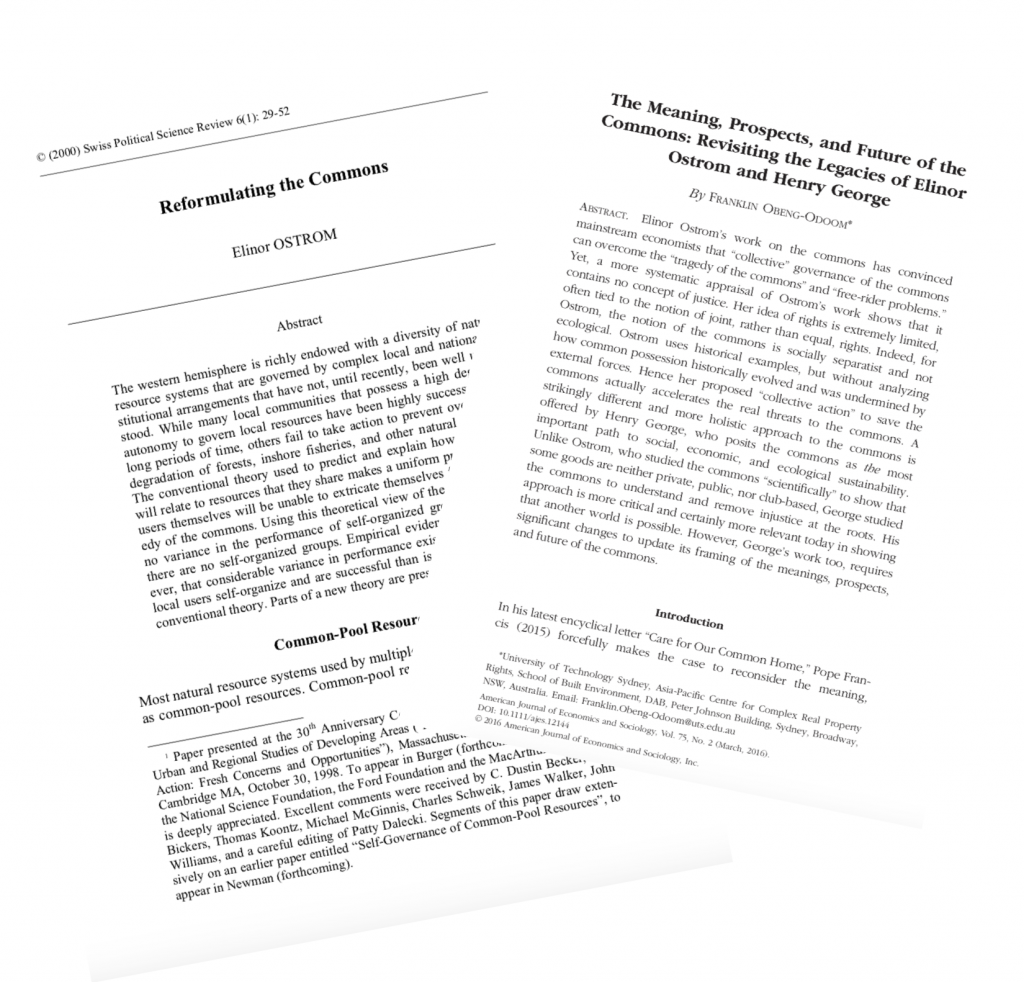Short report from our first session on 7.11.2018. In this first session we discussed the following two readings:
1) Ostrom, Elinor. “Reformulating the Commons.” Swiss Political Science Review 6, no. 1 (March 1, 2000): 29–52. https://doi.org/10.1002/j.1662-6370.2000.tb00285.x.
2) Obeng‐Odoom Franklin. “The Meaning, Prospects, and Future of the Commons: Revisiting the Legacies of Elinor Ostrom and Henry George.” American Journal of Economics and Sociology 75, no. 2 (March 10, 2016): 372–414. https://doi.org/10.1111/ajes.12144.

Giacomo started by presenting the Ostrom article, highligthing that her model comes from economic theory: what are conditions for collective action to influence the sustainability of shared resources? Her theory of commons-pool resources rejects older models that emphasise the role of external authorities in govenring the commons. The article presents in a very concise manner some of Ostrom’s main ideas and vocabulary, which she has elaborated more at length in her book Governing the Commons, and which she brings forwards through a wealth of examples: Common-Pool Resources (CPR) and their successful management through self-organized governance by “appropriators”; proposed design principles for robust and self-governed CPRs; the remaining challenges of size and heterogeneity.
Our discussion of this article brought in the proposition of putting in relationship to one another the notion of the commons and that of publics (as in Dewey’s undertanding). We also wondered when is something a commons and when is it a CPR? Is there a difference? Cooperatives for example pool resources in order to buy equipment…
We also briefly discussed the role of the state or government with regards to the commons: should it always be kept out?
Joanna started her presentation of Obeng-Odoom’s articlewith a disclaimer that she had to do a quick research of contemporary economic theories in order to understand Obeng-Odoom’s positioning. He argues that, although Ostrom’s work appeals to proponents of heterodox economics, Ostrom was not speaking to them. The main challenge with Ostrom work’s, according to him, is that is has no concept of justice. He then introduces economist and social reformer Henry George’s work as an alternative to Ostrom’s on the topic of the Commons, because George’s work in deeply rooted in issues of social justice, and George, unlike academic Ostrom, was also an activist.
We discussed that Obeng-Odoom’s rejection of Ostrom’s on the grounds that he brought forward (no interest in social justice) was strange, even unfair, especially that Ostrom had never claimed to be addressing these issues. The article reads at times like a pro-George pamphlet. It was nonetheless interesting and useful to be introduced to George’s work on the commons and his propositions that the land and natural resources do not belong to any single living of legal entity, and rent on it should be paid to the public (his idea of the single tax).